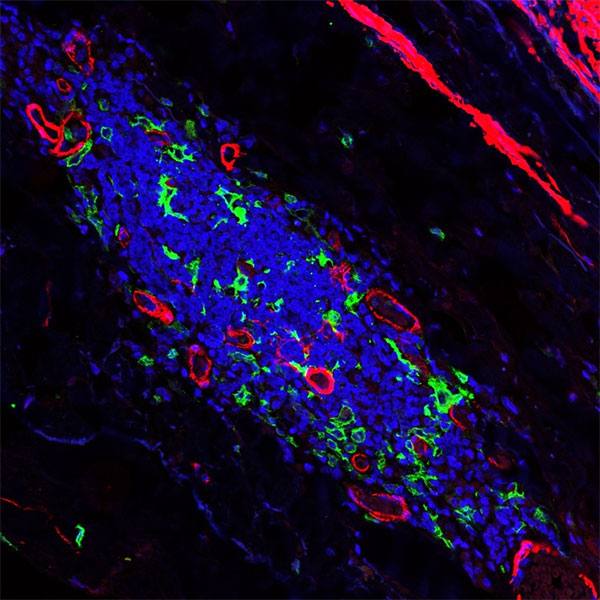-
Heart Cells Become Zombies, Too, Though they Rarely Divide
For the first time, Mayo researchers and colleagues have shown even though heart muscle cells from mice and humans rarely divide, they can become zombie, or senescent, cells. For patients with heart failure who have few treatment options, the authors hope this knowledge will lead to new avenues of research.
Cells that become senescent have, in essence, tripped a cellular alarm. In response, cell programming prevents them from dividing, but the cells don’t die. Researchers think that senescence programming might be activated when a specific part of DNA is damaged. Called telomeres, these repeated sequences of DNA at the end of every chromosome, get shorter with each cell division. Telomeres are frequently compared with the plastic tips on shoelaces: they keep the ends of chromosomes from fraying and sticking to each other. When telomeres get too short, that leads cells to become senescent.
But that doesn’t explain how cells in the heart become senescent. They rarely divide, so their telomeres should remain long and healthy.

To study heart muscle cells, called cardiomyocytes, and how they become senescent, the international team of researchers looked at both old and young mice. Reported in The EMBO Journal, the authors found that during aging, the energy generators within the cell, called mitochondria, become faulty and generate reactive oxygen species which lead to damage in telomeres of cardiomyocytes. They found that this damage was not dependent on telomere length or the number of cell divisions cardiomyocytes undertook. And importantly, say the authors, by removing these senescent cardiomyocytes, the team found that they could improve heart function in aging mice.
“We saw that removing senescent cardiomyocytes from the hearts of aged mice, both genetically and using drugs, was able to restore cardiac health – essentially removing the damage caused by aging. This data provides critical support for the potential of using medicines to kill zombie cells,” said Mayo Clinic researcher Joao Passos, Ph.D., whose research focuses on increasing human health span.
The group is now researching what other benefits can be derived from removing zombie cardiac cells, especially after heart failure, and how telomeres contribute to cardiac ageing.
Other collaborators include Newcastle University, University of Toulouse, University of Glasgow, and the Sanford Burnham Prebys Medical Discovery Institute.







